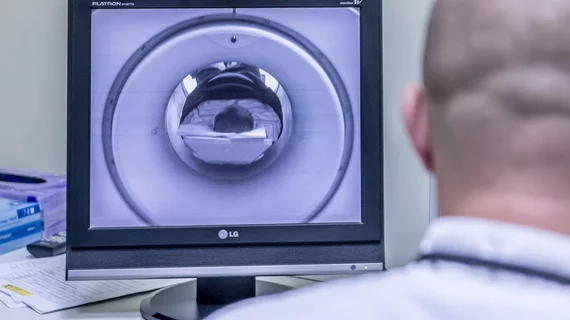Philips seeks to reduce MRI scan times with new FDA cleared AI-powered software
Philips’ artificial intelligence-powered software that decreases MRI acquisition times was just given a green light from the U.S. Food and Drug Administration.
The health technology giant shared that their SmartSpeed AI powered MR acceleration software has received FDA 510(k) clearance in a July 12 announcement. The software will be integrated into Philips’ existing Compressed Sense MR acceleration engine and enables scans to be completed up to three times faster than conventional scans without sacrificing image quality.
“Philips’ AI-based SmartSpeed reconstruction is the new benchmark among acceleration techniques for us. It improves on the company’s existing Compressed Sense in all aspects and allows a reduction in scan times with excellent image quality and diagnostic confidence,” said Dr. Grischa Bratke, radiologist and expert in musculoskeletal imaging at the University Hospital of Cologne, Cologne, Germany.
The new AI addition is said to increase resolution by up to 65% and is compatible with 97% of current MRI protocols, including advanced contrast and diffusion weighted imaging and some quantitative mapping imaging. To preserve image quality in each clinical scenario, the software takes advantage of an AI reconstruction algorithm at the source of the MR signal to remove noise.
“Powered by AI, our leading technologies and smart connected imaging solutions help turn data into actionable insights to increase diagnostic confidence and help improve clinical outcomes for patients,” Kees Wesdorp, Chief Business Leader of Precision Diagnosis at Philips said in the announcement.
For more information, click here.
More on FDA clearances and approvals in radiology:
MRI technology that provides whole-body composition reports gets FDA greenlight
FDA approves new radioligand therapy for PSMA positive metastatic prostate cancer
AI software that triages x-rays for pneumothorax receives FDA clearance
FDA greenlights AI software that detects fractures and traumatic injuries
Hyperfine gains FDA clearance for deep learning-based image reconstruction tool

